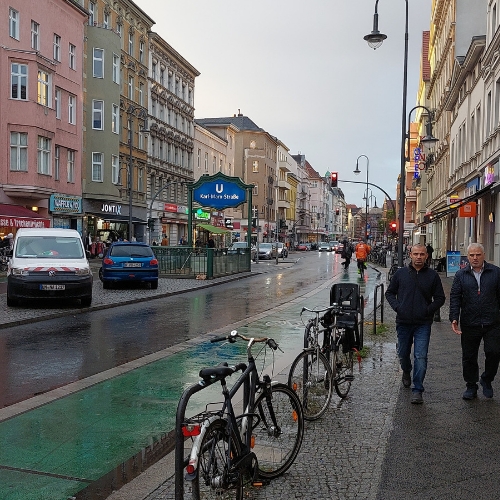My name is Guy Navon.
My internship had been at the GFZ, Germany's national research center for solid Earth Sciences.

Most units in the GFZ deal with Seismology, specifically my internship has been in a unit that researches earthquakes and how to predict them. They have facilitated a real-time service for Germans, that given a reading of seismological waves determines whether it is an actual earthquake or just noise caused by random events near the seismometer.
The system for this service is based on a deep neural network trained with real-world data they have gathered and labeled for further use.
As I come from a background in computer science, I spent my first weeks learning the basics of seismology to understand what kind of data I was going to use, having the help of top-quality seismologists and the help of a Ph.D. researcher that created the service. I then needed to improve my understanding of the network structure, so I studied relevant topics in deep learning like LSTM, transformers, and other related subjects.
The next weeks I spent understanding what sort of improvement can be made for the network and in what way. This has been very challenging as on one hand, I could get assistance from relevant experts, and on the other hand, the system was doing its job well so a suggestion for improvement had to be based upon something the system lacks or data the system performs poorly on. In the end, we chose for me to research calibration, an important topic that relates to how well a neural network classifies or predicts an event in comparison to its underlying mechanism of decision-making.
During the last weeks, I collected relevant literature for practical work and provided an action plan for how to create the actual calibration mechanism. Unfortunately, we understood that this sort of work requires a little bit more time to execute than I had left for my internship as changes to neural networks are complicated and delicate, nonetheless the other intern at the lab had used it for his project and the faculty had been very pleased to have a quick start guide for this subject. They even asked whether I am able to return next year to execute said plan.
In the end, the only downside of this internship is that I could stay there longer or even a whole semester.
I feel working with teams from other institutes opened my eyes to the possible applications of Data Science on real-world, life-threatening problems and how greatly it can enhance human capability. Moreover, I think it is very important to create relationships with researchers from other institutes. GFZ and Germany in general have different approaches from ours to academic research and Data Science and I learned a lot from their style of work and general lifestyle. All of this wouldn't have been fruitful or that important to me if I worked with them from home or read an article they wrote. It was the long period I spent with them (45 days) that enabled me to take the time to understand the subject in detail and understand what I can do to help. It also helped with my confidence as a researcher. I was able to work independently and receive positive feedback for the work I did and decided upon without any help.
During my time there I stayed in Berlin which was lovely and had many attractions. My colleagues were also kind enough to recommend different attractions and ongoing festivals around the city and I even made some local friends.